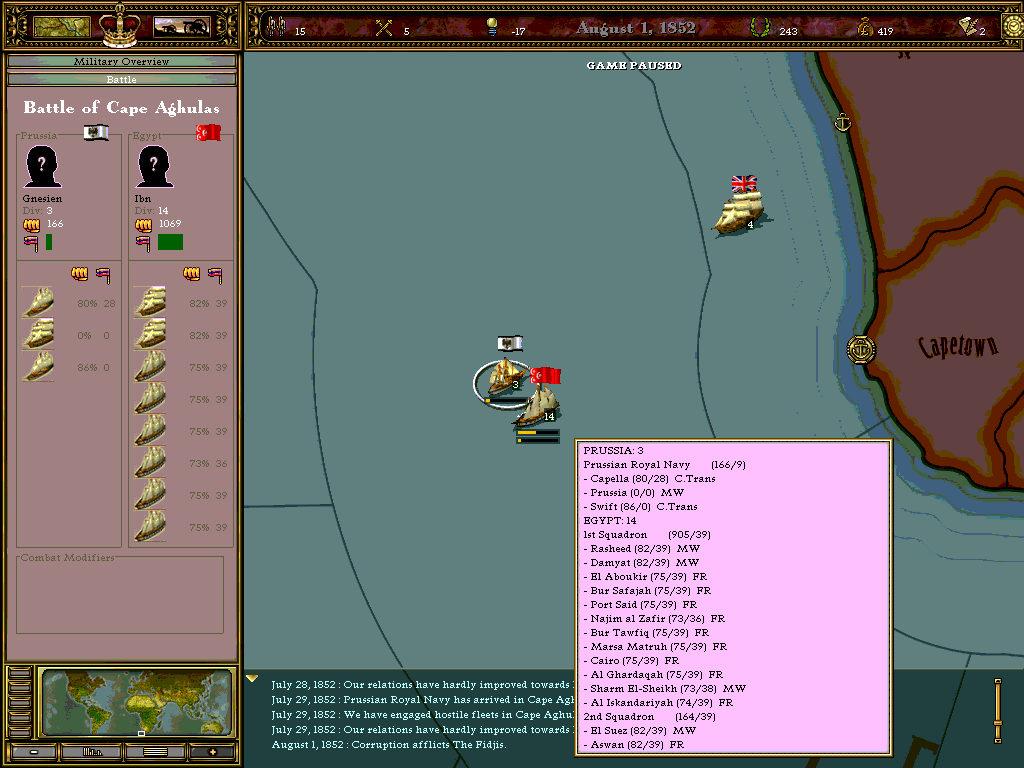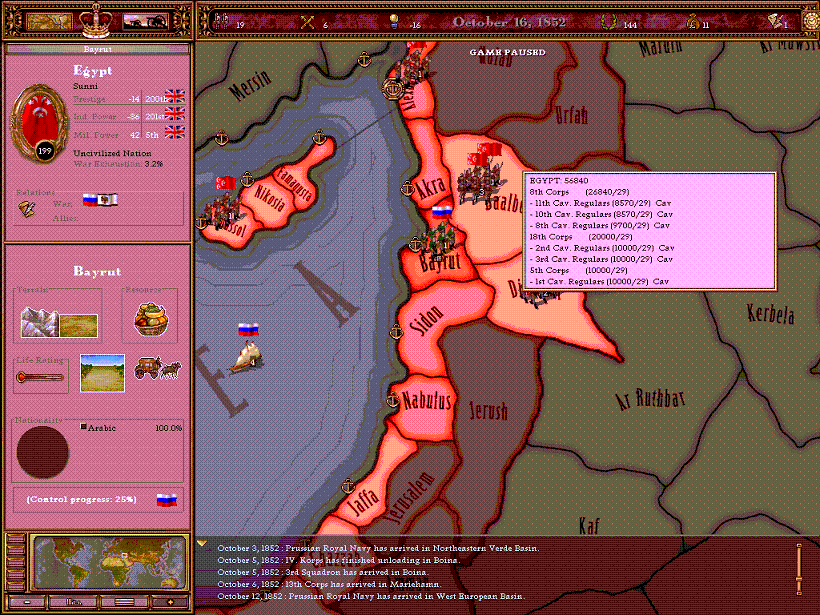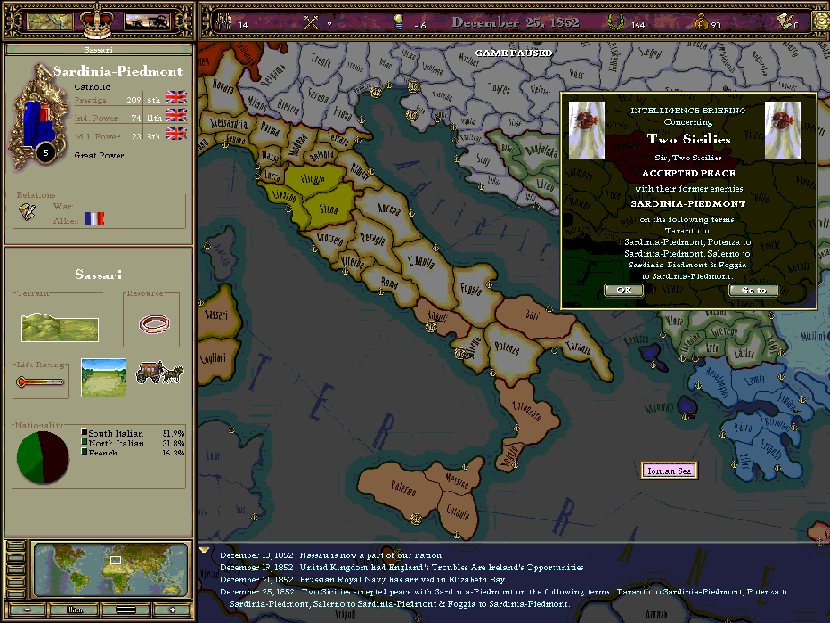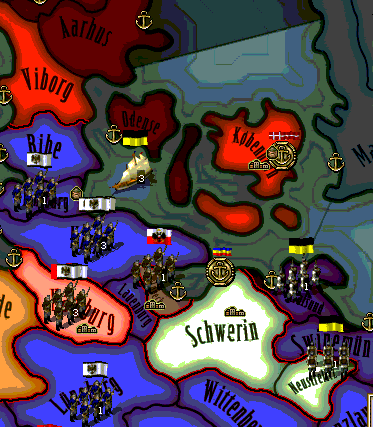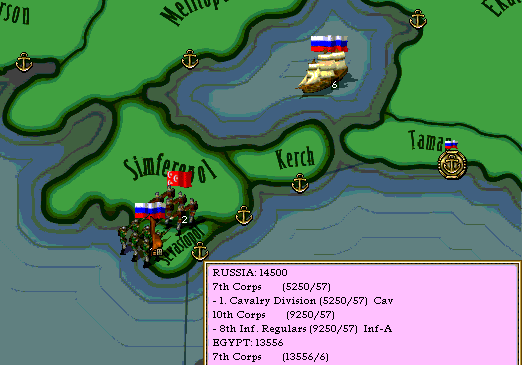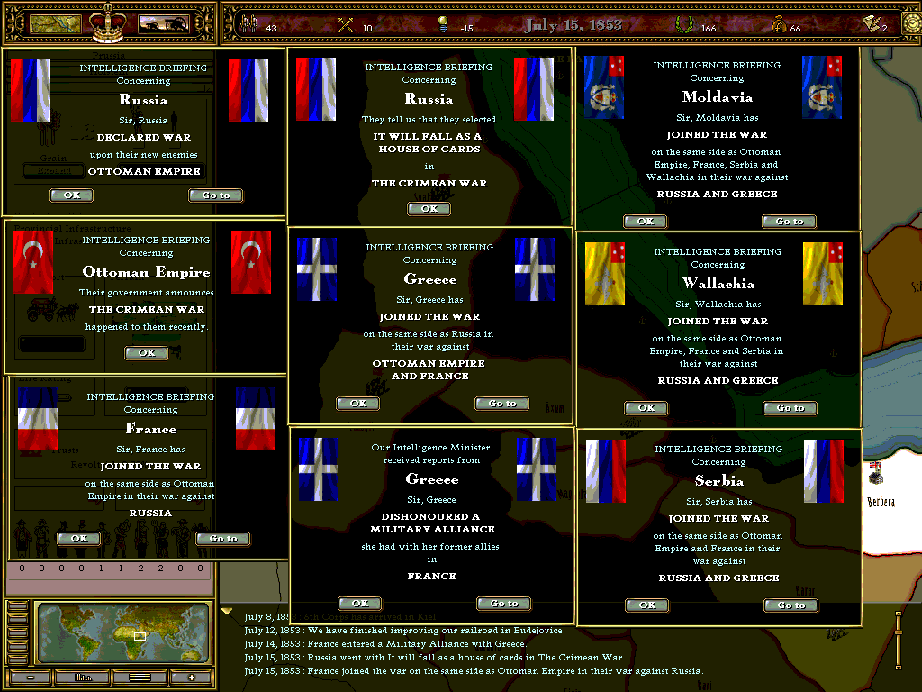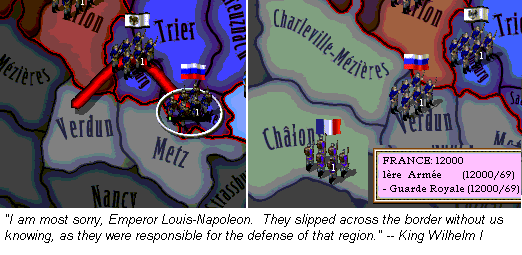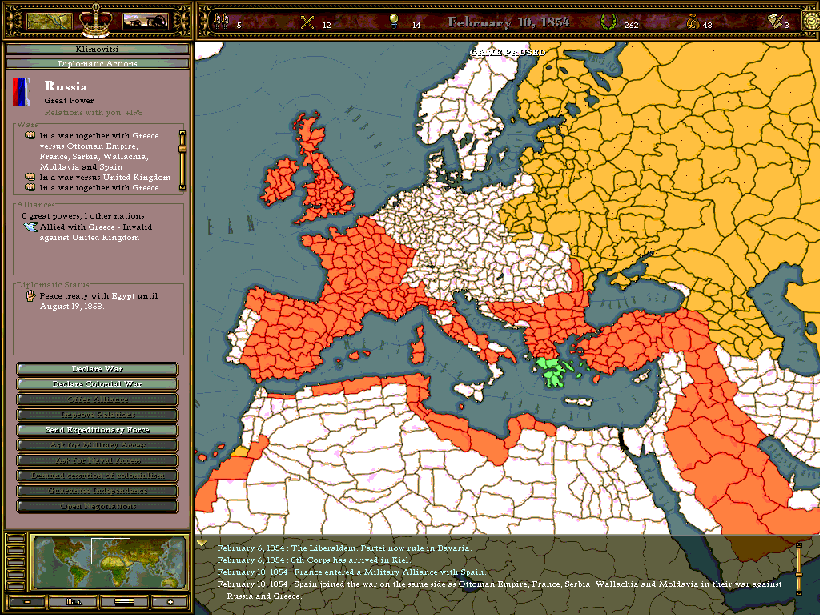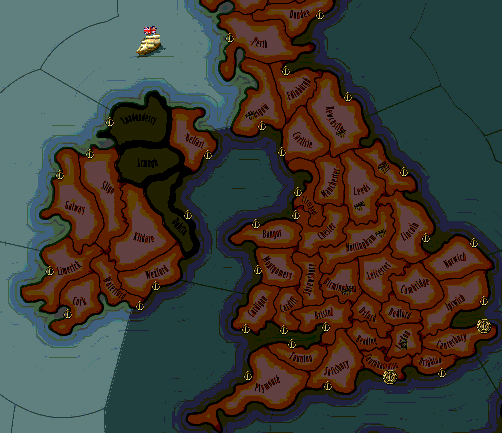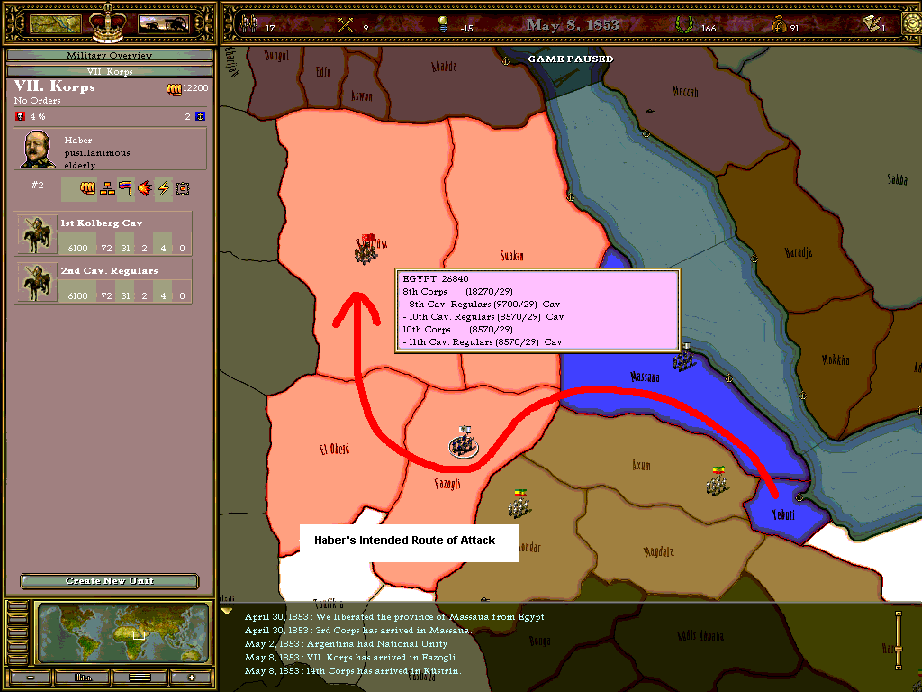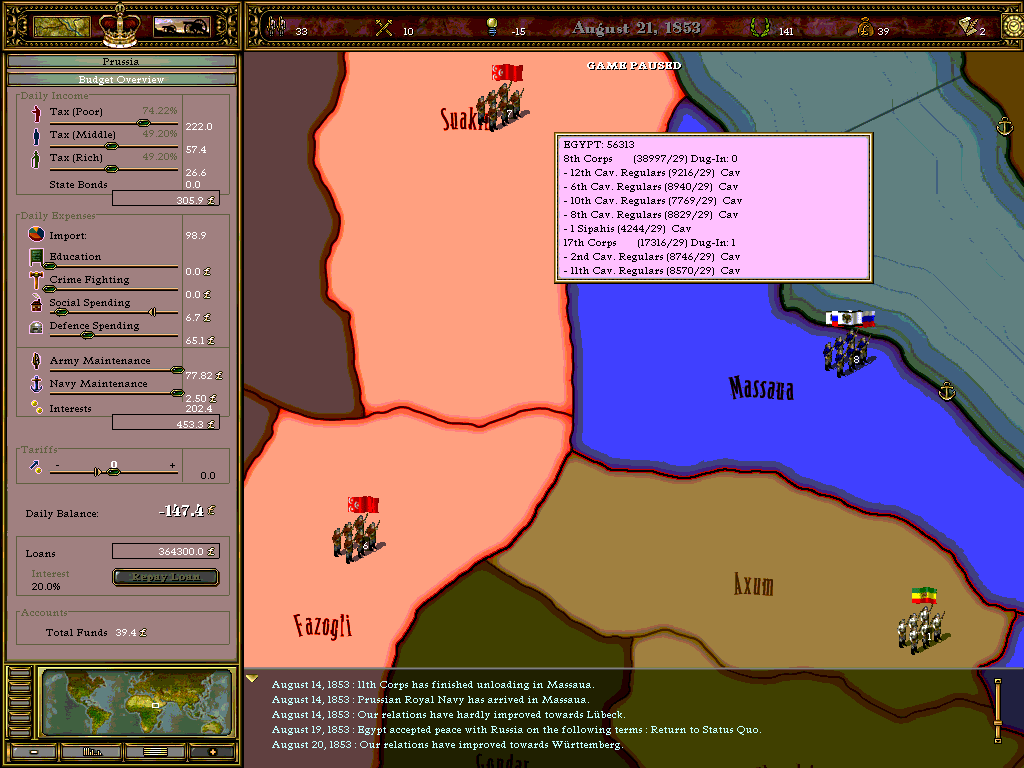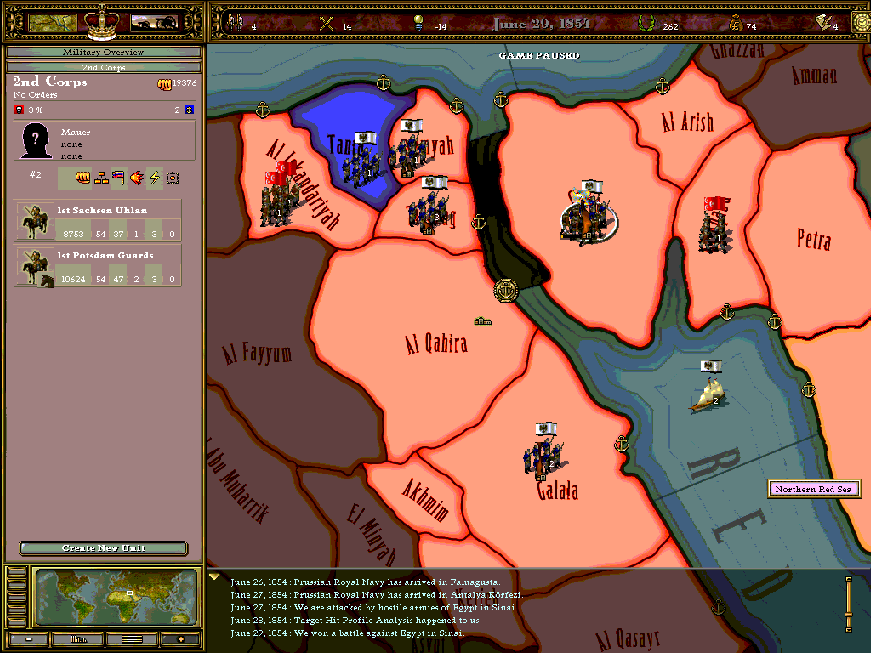Kapitan Gerhard Detzler was a man who longed to command a warship. He had been fascinated by the great ships of the line since first seeing a tall-masted Swedish man-o-war when he was a child. His friends, who lived with him along the Danzig shoreline, all talked about becoming sailors and captains. Detzler swore that he would accomplish it.
And now, as captain of the clipper SMS Capella, he was within sight of his dream, yet it was beyond his grasp. Prussia had built only three modern fighting ships, and two were now sunk. Only the SMS Prussia remained, and it already had a captain.
But SMS Prussia was engaged escorting clippers back home to pick up more reinforcements, and had left Capella behind as what was now the only Prussian ship on the scene of a desperate religious war.
The Egyptian Caliph had issued his religious fatwa -- their equivalent to a declaration of war -- just after Christmas, to expand the reach of Islam south and rid the area of Christian influence. Naturally, the German colonial outpost at Yebuti was their prime target, and the defenders there were fighting for their lives.
SMS Prussia, concerted with SMS Capella, had hurriedly left their newly assigned home port of Kiel with a load of infantry and some cavalry to bolster what were presumed to be hard-pressed defenses in Tadjoura, Yebuti.
Fortunately, they had arrived just in time to prevent capitulation, and these two new divisions were welcome relief. It was then that Capella had split off to rush one more native division from Madagascar into combat -- the only remaining Prussian military force in the region. The rest of the fleet had sailed back to Prussia to transport the Kronprinz’s cavalry for an offensive.
It had seemed such a perfect plan when it was explained to him by the Prussia’s captain. Surely, three of the King’s finest divisions could hold off the savage hordes.
But what Detzler saw when they came within sight of Tadjoura awakened the feeling of dread he had in his stomach until they first arrived in March. He saw smoke hovering over the town, but no sign of heavy fighting. Surely the defenders had pushed the Egyptians back. But he could find no sign of welcoming Prussian signals. There were men on horseback throughout the town. But there were no Prussians to be seen. Where might they have retreated to?
A search was initiated, and at length a Prussian refugee was found. He confirmed their absolute worst fears. The line had broken under an onslaught of Egyptian cavalry. There was no hope, as they flooded into the capital. Prussian soldiers and men were slaughtered, or captured and beheaded. The women and children were taken, and presumably sent back to Egypt.
Three Prussian divisions had ceased to exist, practically to a man. It was the worst Prussian military disaster Detzler had known -- since Napoleon’s crimes, when Detzler was but an infant. And the horror visited upon the pride of the Prussian people would not easily be forgotten.
In conference with General Getz, he agreed that there would be no point in landing 7,000 native troops against a force possibly ten times their strength. They would return to Madagascar, send word back home, and wait for reinforcements.
But Detzler also knew for certain that there would be no mere taking back of Prussia’s colony. A shock to the nation like this would not go down easily. This was now a war of revenge, and Egypt would pay for this outrage.
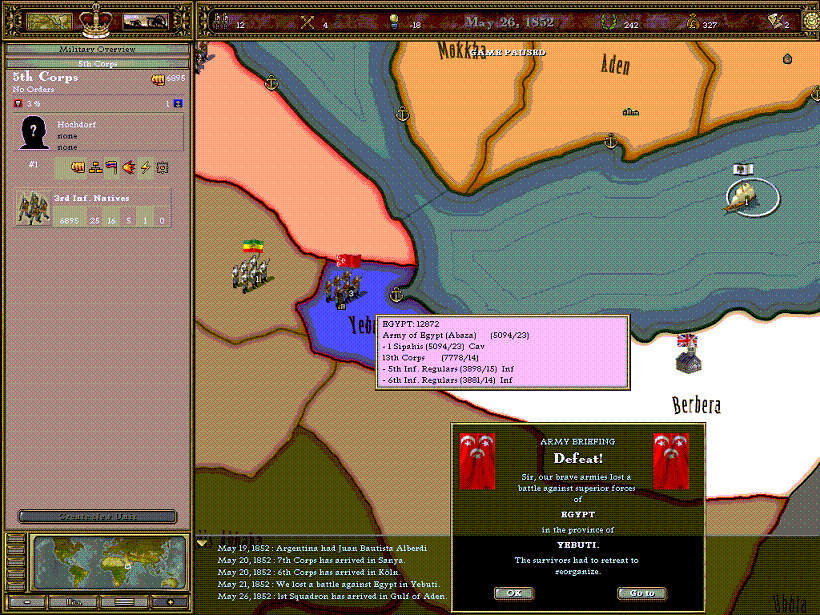
And now, as captain of the clipper SMS Capella, he was within sight of his dream, yet it was beyond his grasp. Prussia had built only three modern fighting ships, and two were now sunk. Only the SMS Prussia remained, and it already had a captain.
But SMS Prussia was engaged escorting clippers back home to pick up more reinforcements, and had left Capella behind as what was now the only Prussian ship on the scene of a desperate religious war.
The Egyptian Caliph had issued his religious fatwa -- their equivalent to a declaration of war -- just after Christmas, to expand the reach of Islam south and rid the area of Christian influence. Naturally, the German colonial outpost at Yebuti was their prime target, and the defenders there were fighting for their lives.
SMS Prussia, concerted with SMS Capella, had hurriedly left their newly assigned home port of Kiel with a load of infantry and some cavalry to bolster what were presumed to be hard-pressed defenses in Tadjoura, Yebuti.
Fortunately, they had arrived just in time to prevent capitulation, and these two new divisions were welcome relief. It was then that Capella had split off to rush one more native division from Madagascar into combat -- the only remaining Prussian military force in the region. The rest of the fleet had sailed back to Prussia to transport the Kronprinz’s cavalry for an offensive.
It had seemed such a perfect plan when it was explained to him by the Prussia’s captain. Surely, three of the King’s finest divisions could hold off the savage hordes.
But what Detzler saw when they came within sight of Tadjoura awakened the feeling of dread he had in his stomach until they first arrived in March. He saw smoke hovering over the town, but no sign of heavy fighting. Surely the defenders had pushed the Egyptians back. But he could find no sign of welcoming Prussian signals. There were men on horseback throughout the town. But there were no Prussians to be seen. Where might they have retreated to?
A search was initiated, and at length a Prussian refugee was found. He confirmed their absolute worst fears. The line had broken under an onslaught of Egyptian cavalry. There was no hope, as they flooded into the capital. Prussian soldiers and men were slaughtered, or captured and beheaded. The women and children were taken, and presumably sent back to Egypt.
Three Prussian divisions had ceased to exist, practically to a man. It was the worst Prussian military disaster Detzler had known -- since Napoleon’s crimes, when Detzler was but an infant. And the horror visited upon the pride of the Prussian people would not easily be forgotten.
In conference with General Getz, he agreed that there would be no point in landing 7,000 native troops against a force possibly ten times their strength. They would return to Madagascar, send word back home, and wait for reinforcements.
But Detzler also knew for certain that there would be no mere taking back of Prussia’s colony. A shock to the nation like this would not go down easily. This was now a war of revenge, and Egypt would pay for this outrage.

Last edited:


